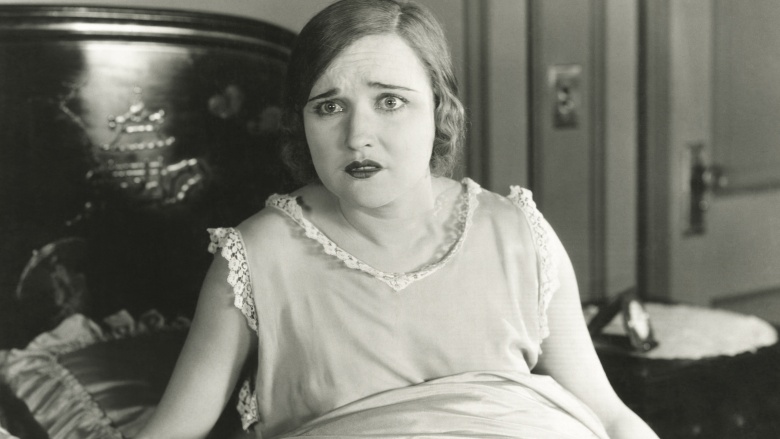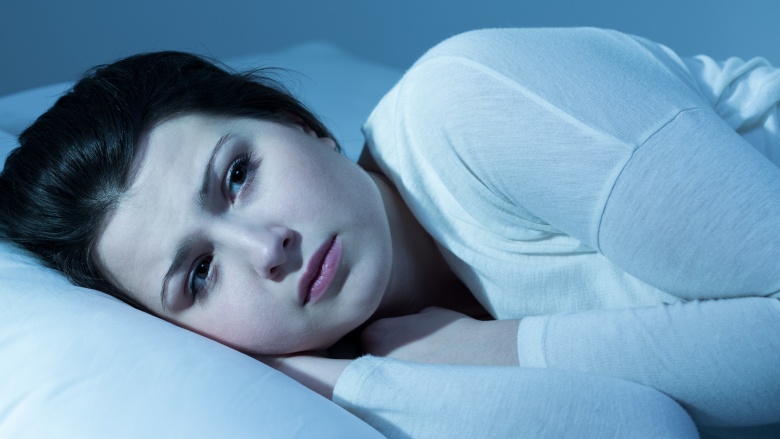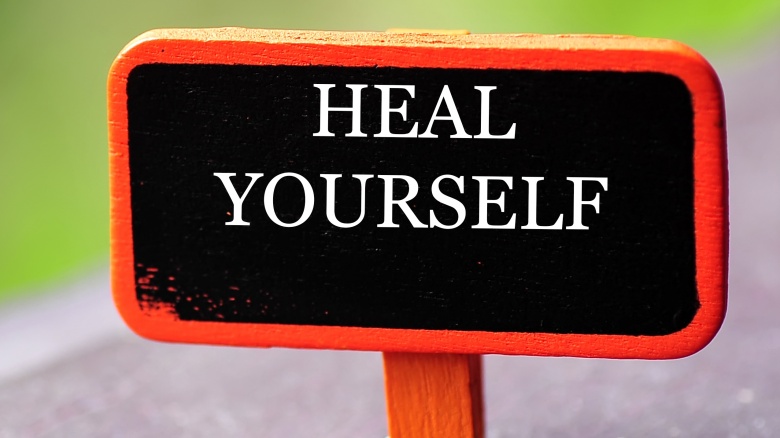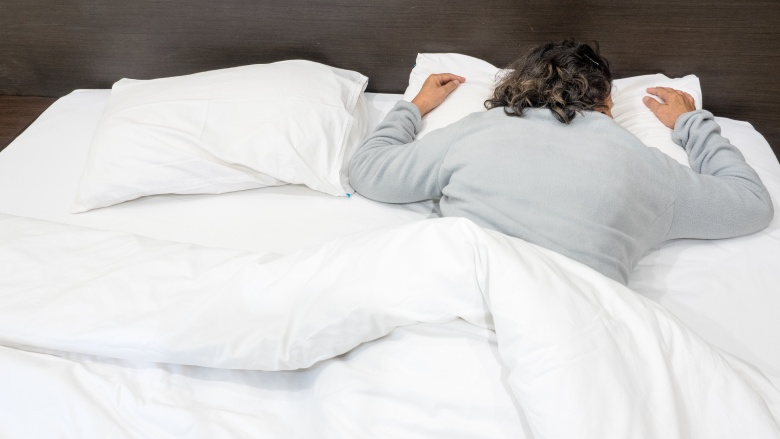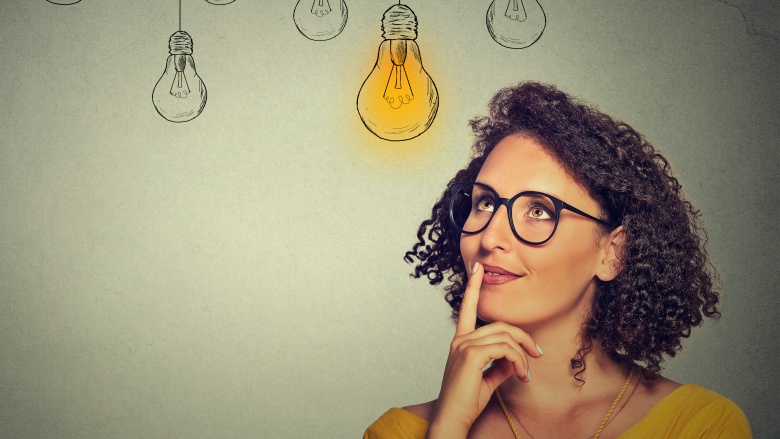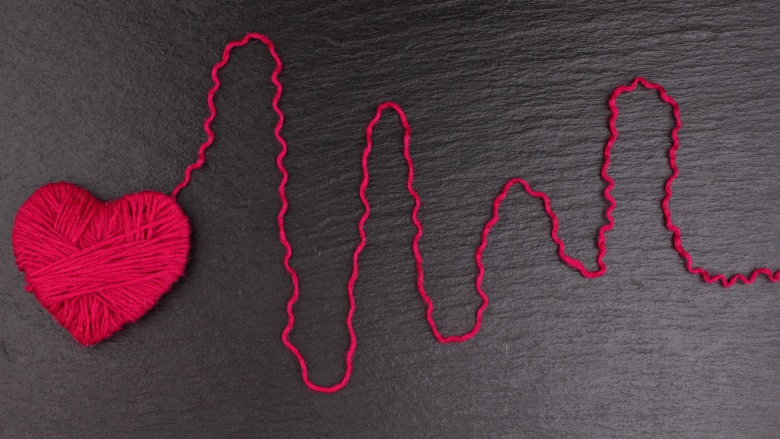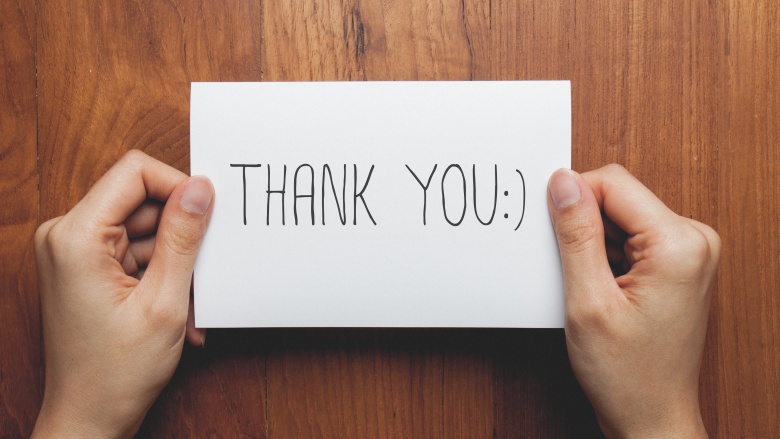What Really Happens To Your Body When You Dream
Have you ever asked yourself, "What happens to my body when I dream?" Well, you're not alone. We've all wondered, at one time or another, what exactly happens to our bodies when we dream. Now, it's time to get some answers.
According to the International Association for the Study of Dreams, everyone dreams — even if they don't remember it. Dreaming is a natural part of sleeping. So maybe instead of asking, "What happens to my body when I dream?" you should be asking, "What happens to my body when I sleep?" Dreams and sleep go hand in hand. And it turns out, our bodies do a lot while we're doing both.
You twitch
There are phases to falling asleep. During the first phase, you're somewhere between awake and asleep, according the The National Sleep Foundation. Your eyes start to move back and forth, as your body prepares for a good night's rest. Even though your muscles are relaxing, you might experience a twitch — otherwise called a hypnic jerk. You might be saying, "No, I've never experienced that!" Don't be so sure. Have you ever felt like you were falling while you slept? I have! Well, that's a hypnic jerk. It can result in eye twitching, jerks or even that scary falling feeling.
You lose sense of your surroundings
After the first phase is over, you move into the second phase of your sleep cycle. Your body temperature drops, and you lose a sense of your surroundings. The National Institutes of Health's report, Your Guide To Healthy Sleep, says you'll experience "slower brain waves with occasional bursts of rapid waves." Have you ever felt disorientated, or confused right before falling asleep? Most likely, you were in this phase.
Your energy is restored
The third, and final phase before REM, might be more important than you thought. This phase is responsible for restoring your energy and releasing hormones. During phase three, your brain function is reduced and you're breathing and heart-rate are regular. This is the start of your deep sleep.
According to The National Sleep Foundation, this is the cycle where the blood supply to your muscles increases and "tissue growth and repair occurs." So basically, your body is healing itself while you start to wander off to dreamland. Good to know!
You fall into a deep sleep
Your most vivid dreams happen during REM (rapid eye movement) sleep. During REM, your brain is active and your eyes are moving. Yes, you read that right — your eyes are actually moving underneath your eyelids. How crazy is that? "REM sleep occurs every 90-100 minutes, three to four times a night..." according to the International Association for the Study of Dreams. If you've ever woken up from a dream that was too realistic, strange, or just plain scary — it was because of REM. So, go ahead and thank REM cycle for those pesky little nightmares you have sometimes.
You lose muscle tone
Have you ever tried to move your body during a dream, but couldn't? Well it turns out, that paralyzing feeling is because of REM. "In REM sleep, there is loss of almost all muscle tone, except for the diaphragm and eye muscles," according to Psychology Today. You literally can't move a muscle during REM sleep (except for the muscles that control your eyes). So, for the most part, when you dream your body remains very very still.
Your brain thinks
Your brain doesn't actually sleep when you do. On the contrary, your brain is wide awake. It's making decisions and processing information, all while you're fast asleep.
A recent study, published in the journal Current Biology, helped prove this idea. Participants were given verbal words to categorize. They were asked to press a left or right button for each word. Left, words that referred to animals. Right, words that referred to objects. At first, participants were awake. It wasn't until they fell asleep that researchers saw their brains still categorizing the words they heard. Of course, the participants weren't actually pressing a button — they were asleep. However, their brains weren't.
Monitoring devices showed that even though the participants were asleep, their brains were actively preparing the motor function needed to press the left or right button (depending on the word). "So not only did they process complex information while being completely asleep, but they did it unconsciously," wrote researchers Thomas Andrillon and Sid Kouider in The Washington Post.
So, in case you ever wondered if your brain shut down when you do — it doesn't.
Your heart speeds up
We already learned that, for the most part, you can't move your muscles when you're sleeping, right? However, your breathing slows down, your limbs start to feel heavy, and your eyes are usually closed. In other words, you're relaxed. Well, even though your body feels rested, your heart is still going...quite fast, actually. According to Sleep and Health Journal, your heart rate can actually speed up while you sleep.
"Researchers have been surprised to find that the relationships between the heart and other organs in sleep were different from those during an awakened state," wrote Dr. Sushil Sharma, M.D. When you're awake, if your breathing increases, your heart rate increases. But when you're asleep, it's the opposite. If you breathing decreases, your heart rate might increase and vice versa.
You're getting therapy
When you dream, your body is relaxed. But like we learned, your mind is still active. What's your mind active doing while you dream? Helping you fix your emotional problems, of course.
"The best way to think about dreaming is that it's a natural process that deals with problems that occur during the day," stated Robert Hoss, the former president of The International Association of Dreams, to Insider. Memories are used in dreams. Sometimes, the images you see in your dreams are familiar in a way. For example, maybe you have a problem with flying. Your might dream about being in the air. Hoss went on to say, "Your dream goes and looks for associations with the past to try to solve these problems. So the problems you see in your dreams are all your personal stuff — your personal memories, your personal associations — and these associations have a real meaning to you."
Basically, your dreams are a way of working out any negative thought or emotional distress you might have. You're basically getting therapy, but for free.
Your body has your back
Well, there you have it — everything you need to know about what happens to your body while you dream. Who would've known our bodies do so much for us while we're sleeping? Go ahead and thank your body right now, it truly does have your back!


